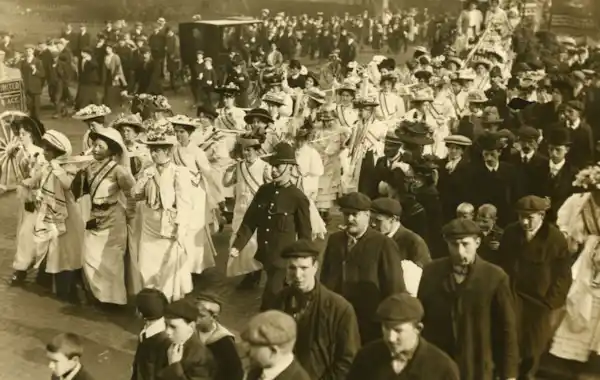We take a look at 3 of the best resources for tracing your female forebears.
Although many of us think of the votes for women cause within its Edwardian context, with women marching on parliament, spurred on by campaigners such as Emmeline Pankhurst and Flora Drummond, the cause actually had its roots in the Chartism campaign of the Victorian era, which aimed to gain political rights for working men. Millions of people signed the demands for six rights for working-class males and it was this movement which paved the way for the votes for women cause decades later.
After years of struggle, the end of World War I eventually saw some women and all men gain the vote for the first time, when the Representation of the People Act 1918 was passed. It would be a further 10 years before all women over the age of 21 gained the vote, almost a century after the endeavours of the first Chartists.
Here are 3 of our favourite resources to help get you started with your own research in England, Scotland and Wales:
1) The Women’s Library – The London School of Economics and Political Science (LSE)
The Women’s Library began life as The Library of the London Society for Women’s Service at a converted Westminster pub in 1926. Its aims were to preserve the history of the women’s movement, and provide a resource for newly enfranchised women to enter public life. Renamed the Fawcett Library in 1957 and the Women’s Library in 2002, the collection is now homed at the LSE and includes printed materials, archives and artefacts. See the website for details about access and links to the digital library and online collections.
Head along to the UK’s only accredited museum dedicated to the lives of women, their history and achievements. The archive and collections are rich in artefacts with a wide range of items including photographs, recipe books, girls’ annuals, suffrage material and knitting patterns. The library holds regular events and exhibitions and visitors are welcome from Mondays through to Saturdays.
WAW was founded in 1997 to rescue and preserve records of the lives and experience of women in Wales, and to raise awareness of the history of women in Wales.
• Research tip
Explore the British Library’s Votes for Women resources.
Image: from The Women’s Library collection at LSE on Flickr.







